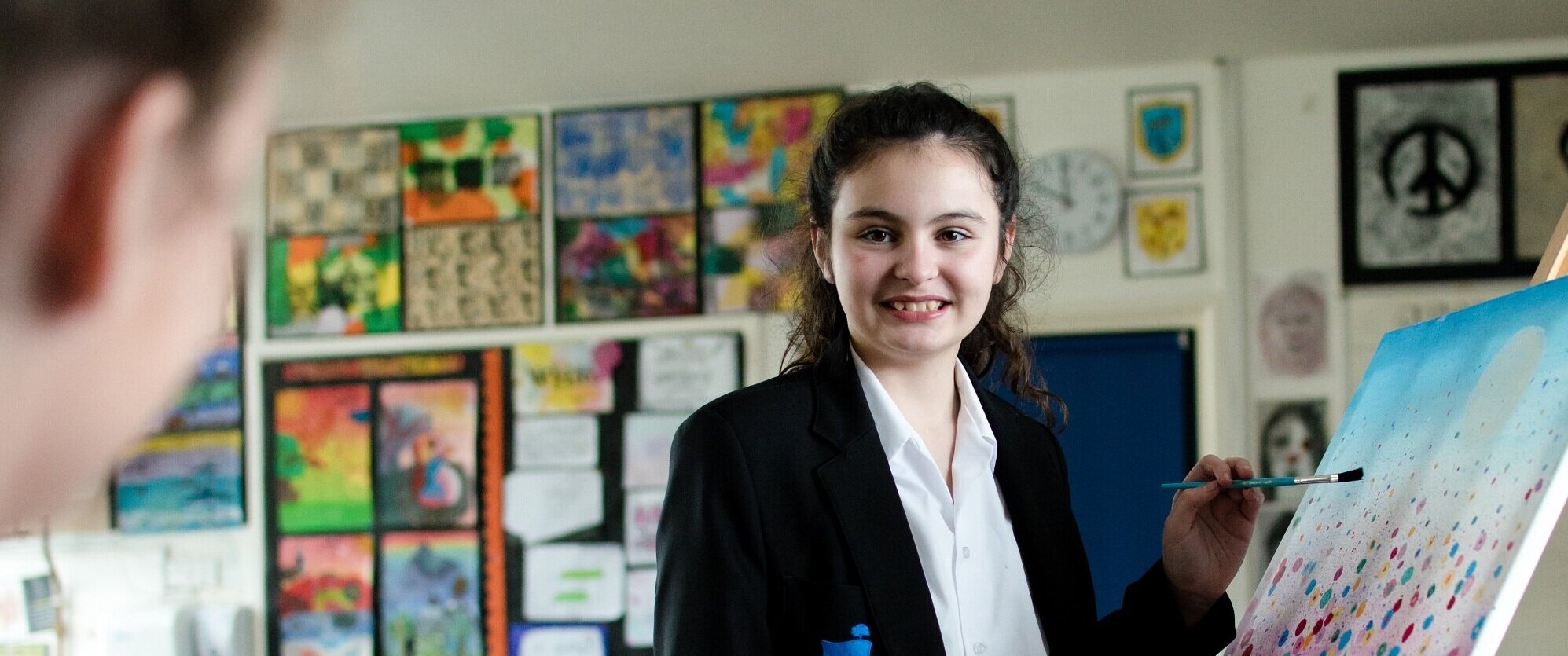
Home > Curriculum and Learning > Photography
Photography (Key Stage 4 only)
The Course
Component 1: Portfolio
This comprises a series of projects developed in response to a theme and the work of a range of photographers. Also, a selection of further work resulting from activities such as skills based workshops, experimentation and external visits. The portfolio comprises 60% of the GCSE final mark
Component 2: Externally Set Assignment
Students respond to their chosen starting point from an externally set assignment paper. This project includes research, experimentation and preparation, concluded by 10 hours of supervised time. The externally set assessment comprises 40% of GCSE.
Why you should study Photography
As our communications move more and more into the digital sphere, photography becomes an increasingly important part of our daily lives. Photographic images surround us, and shape our understanding of the world more profoundly than ever before in human history. Being able to understand – to ‘read’ images – is vital to our understanding of the culture we live in, and increases our enjoyment of other people’s creative output. Whether you want to be a professional photographer or whether you would just like to be able to make high quality visual content to support another interest; being able to produce your own, high quality images allows you to join in the visual conversation. GCSE photography is your first step towards this goal.
What will you learn in photography?
As you study photography you will learn how to ‘deconstruct’ photographic images; to understand how an image is made, what equipment and processes were used, what the intention of the photographer was and what context or situation the work was produced in. You will learn how to apply this understanding to your own work through a series of skills workshops and themed projects, culminating in a self-led project in Year 11. You will learn digital and chemical processes, and apply your skills both inside the school, on external visits and in your own practice at home. You will learn how to organise and present your work digitally and in your portfolio. You will learn how to use camera functions, apps and related software. You will learn how to enhance, edit and manipulate images using adobe creative suite, and how to produce abstracted and composite designs.
To be successful in GCSE photography you need to be highly self-motivated; much of the photographic work takes place outside of lessons. You need to have a keen interest in photography and visual culture and be willing to experiment. You also need to be able to dedicate time, energy and care into building up a portfolio of your own work, as well as analysis of the works of others.
Which courses could you take at college or university in the future?
Art and Design foundation course, Lens based media (film), Photography, Photojournalism, Web design, Advertising, Other design / art based courses with transferable skills such as Fine Art / Graphic Design
What are the possible career opportunities?
The creative industries are very broad and there are many job roles and specialisms available for graduates of arts based courses. These include:
Working in the media or in advertising, as a photographer, film maker, technical specialist or in post-production.
Web design and related services
Graphic design and layout
Photojournalism
Fine Art photography
Photography services such as wedding / product / sports / wildlife / fashion photography
Photography, film and arts education

